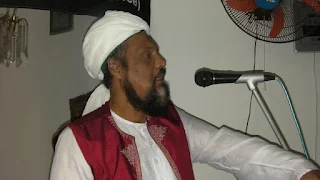'Ghibbat'- VIII
Alhamdulillah,
Summa Alhamdulillah, today also I continue my series of sermons
on Surah Al-Hujurat, and [more specifically] the Hadiths on the
subjects of “Ghibbat” (backbiting, gossips - spreading
misinformation), thinking badly of others and spying on people, etc.
 I
now quote a second Hadith that is very long and found in [the book
of] Muslim and also in [that of] Bukhari, Kitab-ul-Adab.
I
now quote a second Hadith that is very long and found in [the book
of] Muslim and also in [that of] Bukhari, Kitab-ul-Adab.
Abu
Huraira reported Allah’s Messenger (pbuh) as saying: “Avoid
suspicion, for suspicion is the gravest lie in talk and do not be
inquisitive about one another and do not spy upon one another and do
not feel envy with the other, and nurse no malice, and nurse no
aversion and hostility against one another. And be fellow-brothers
and servants of Allah.” (Muslim)
In
another version of this Hadith, reported in Muslim, Hazrat Muhammad
(pbuh) tells us to stay away from badzani, to think badly of a
person, because badzani is a bad kind of lie. Do not stay
engaged in looking for the faults of others. Do not spy on your
brothers, do not be greedy for good things, do not be jealous, have
no enmity for your brothers, do not be insolent. Do not break
relations with your brothers. Become servants of Allah and live like
real brothers. A Muslim is a brother to another Muslim. And do not
commit injustice among you. A Muslim does not diminish his brother
and does not humiliate him either.
And
Hazrat Muhammad (pbuh) also pointed to [in the direction of] his
heart and said that: Taqwa is here.







